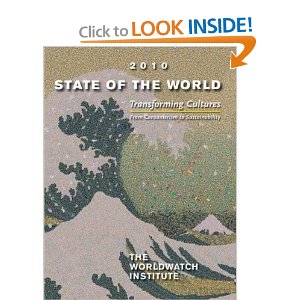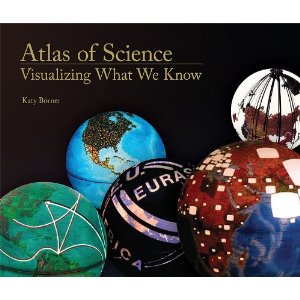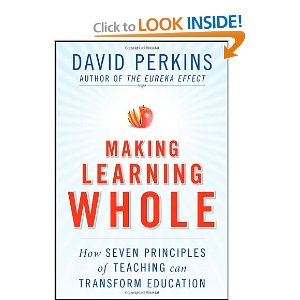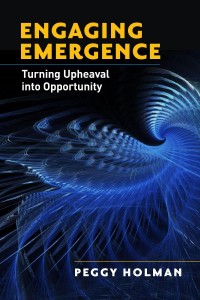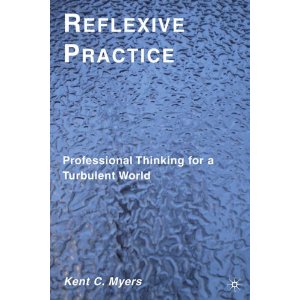
![]() Spectacular–An Original Priceless Contribution
Spectacular–An Original Priceless Contribution
August 29, 2010
Ken Conca
I've been reading for a week to clear twelve water books for shipping before I leave Guatemala, this is next to last and perhaps the most valuable of the lot in terms for actually doing something useful in the future. The last, The Evolution of the Law and Politics of Water I will look at tomorrow, but I already do not recommend it for two reasons: its utterly outrageous price, and its narrow focus on the law in isolation from all else. This book is the “capstone” book in my twelve book program, and I will rate it as 6 Star and Beyond at Phi Beta Iota the Public Intelligence Blog, where you can see all my reviews on water books with one click.
I am impressed very early on as the author discusses how institutions not only restructure within their existing paradigms instead of in novel ways, but they have the greatest say at the table. This is a death sentence for society. For an understanding of how important this insight is, that we must stop doing the wrong things righter and do the right things instead, see Reflexive Practice: Professional Thinking for a Turbulent World and its root book by Russell Ackoff, Redesigning Society (Stanford Business Books).
Three quotes merit sharing immediately.
QUOTE (3): One motive for writing this book is to examine the stark disconnect between the [corporate/UN] forum's blueprint for forging a global water regime and the contentious politics surrounding water all around the world.
QUOTE (5): We have been witnessing the development, proliferation, and growing embeddedness of rules, roles, and practices that shape water-related policy decisions and political struggles all over the world.
QUOTE (7): Unlike most conventional international environmental regimes, these emerging institutions have found a way to incorporate more pluralistic understandings of authority, more flexible conceptions of territorial sovereignty, and more heterogeneous ways of knowing about problems and solutions.
HERE I WANT TO STRESS: HYBRID COALTIONS & INFORMATION-SHARING. This is the consistent theme I have seen over the past 12 books. It CAN be done by multiple stake-holders who come together to share information and make-sense together–it is TRUE COST information, and completely truthful information about all concerns and interests, that makes trust and consensus possible.
QUOTE (10): Global environmental problems result from the poor fit between national borders, and a planetary ecology that ignores those borders.
HERE I WANT TO STRESS: There's only one person I have read who has it right and that is Phillip Allot out of Cambridge. See my review of his brilliant book, The Health of Nations: Society and Law beyond the State. The artificial boundaries imposed by the colonial powers should not be allowed to stand. It's time for the tribes to come back to the fore and do three things: exile dictators; nationalize colonized property including land and water; and kick IMF, WTO, and World Bank out of town.
The author is way ahead in both his ethics and his intellect in understanding that stupid predatory laws and treaties will not stand the test of time. We are all now moving at Internet speed. He specifies that instead of laws or treaties, what hybrid groups must construct are “a bundle of common understandings, shared expectations, and cooperative norms.” That is precisely what Stewart Brand, Howard Rheingold, Art Kleiner, Harrison Owen, Peggy Holman, Barbara Ehrenreich, Tom Atlee, and Jim Rough, among many others, have been developing for the past three decades. It's called Conscious Evolution. See all those books easily at Phi Beta Iota.
The author backs into systems thinking with a discussion of how local systems in the aggregate comprise a global system that no one regime can control. Normally I would go “duh” but in the context of this book and the other discussion the author provides, that's not the right answer. He's on to a serious approach to the most serious problem we all face, and this book merits a full reading. Of course, one should also reach across Buckminster Fuller, Medard Gabel, Russell Ackoff, and the late John N. Warfield. They wrote the book on how to do this, along with Richard Falk and many others in the 1970's, the difference is that now people are starting to realize they were right and SHOULD have been listened to.
The author deconstructs and reconstructs the three core themes of knowledge (what Earth Intelligence Network calls public intelligence), territoriality, and authority. In all three instances, intelligence and ethics play huge roles. He devotes a chapter to the destabilization of knowledge (not “owned” by anyone), the hybridization (his word, very important) of authority, and the deterritorialization of nature (or recognition of reality 101).
Throughout the book I see clear evidence that the author is current with ecological economics, true cost, cradle to cradle, and the many other green to gold ideas, and what he is bringing into play here is a theory of gaming–of institutionalizing roles that states have ignored, or blending hybrid alliances, etcetera.
I am pressing ahead to the conclusion but see throughout the book a connection between legitimacy and shared knowledge or knowledge agreed to be in common, i.e. valid. This is hugely important and applies to every aspect of water governance. See Max Manwaring's edited work, Environmental Security and Global Stability: Problems and Responses.
In his concluding chapter, alone worth the price of the book and naturally “cutting to the chase,” the author addresses:
01 Acknowledging social conflict associated with environmental issues, rather than papering over it (IPCC) or mis-labeling it as ethnic conflict (India et al)
02 Establishing a global dispute resolution authority. While the International Tribunals are by no means the right model, I can clearly see how a hybrid regional organization that is intelligence (decision-support) driven could allow the UN and others to “Deliver As One” while addressing all ten threats across all twelve policies regardless of who is paying or doing what. INTELLIGENCE IS THE KEY–PUBLIC INTELLIGENCE.
03 Citing Ronnie Lipschutz, he describes an emergent system that sounds to me like Panarchy–everyone has a voice, all of the complexities are brought forward, diversity and respect and dignity are paramount. The Native Americans called this “seventh generation thinking.”
In his concluding two pages he brings up the term “politics by other means” and I find that absolutely fascinating. To me it means a rejection of the two-party or one-party tyranny's that subvert so many countries, and the emergence of participatory budgeting and Open Everything (see my brief by that title at Phi Beta Iota). He diplomatically slams political science for equating regimes, institutiions, and states, and generally calls for a broadening of the governance model to include all humans with access to all information all the time. I'm putting the last bit in, but we are clearly on the same track.
I cannot do this book justice in the time I have. It is a graduate level text that precocious under-graduates could handle, and it is continuing education for under-imaginative policy and political and economic leaders. It could easily be read multiple times, but I will content myself with concluding that this author is one mind that cannot be ignored.
Best three books on water from my point of view:
The Atlas of Water, Second Edition: Mapping the World's Most Critical Resource
Water: The Fate of Our Most Precious Resource
When the Rivers Run Dry: Water–The Defining Crisis of the Twenty-first Century
Strategic level essential reading:
High Noon 20 Global Problems, 20 Years to Solve Them
A More Secure World: Our Shared Responsibility–Report of the Secretary-General's High-level Panel on Threats, Challenges and Change [Free online, look for it]
And of course the books that I have published, all free online, go to Phi Beta Iota and click on Books at top of middle column.


